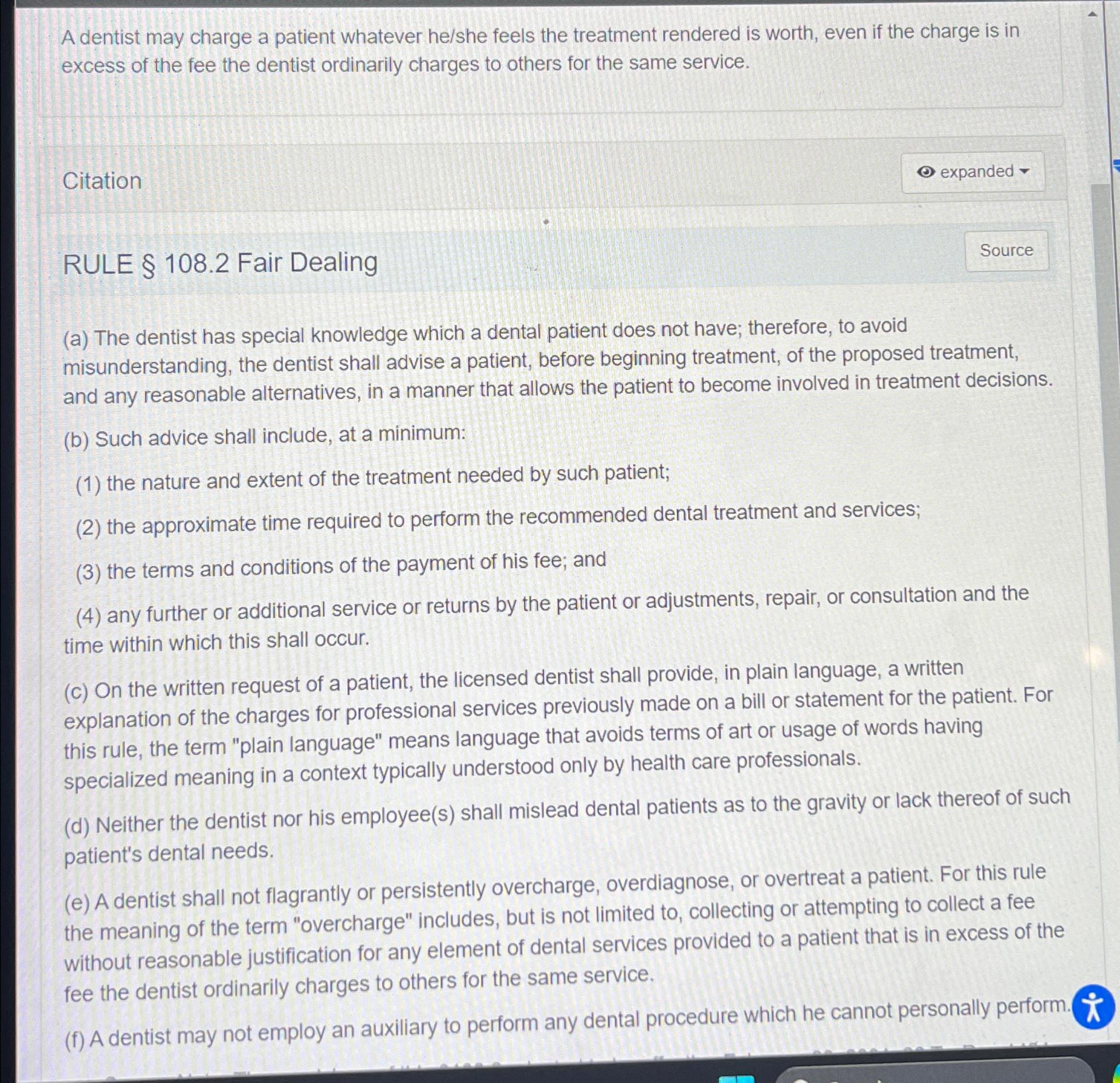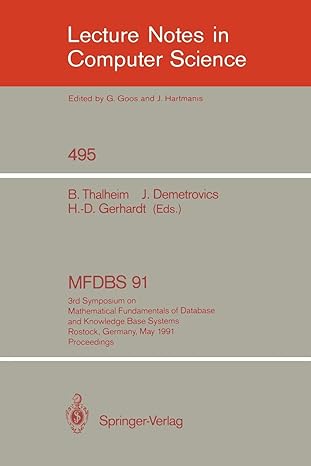Answered step by step
Verified Expert Solution
Question
1 Approved Answer
A dentist may charge a patient whatever he / she feels the treatment rendered is worth, even if the charge is in excess of the
A dentist may charge a patient whatever heshe feels the treatment rendered is worth, even if the charge is in excess of the fee the dentist ordinarily charges to others for the same service.
Citation
RULE Fair Dealing
a The dentist has special knowledge which a dental patient does not have; therefore, to avoid misunderstanding, the dentist shall advise a patient, before beginning treatment, of the proposed treatment, and any reasonable alternatives, in a manner that allows the patient to become involved in treatment decisions.
b Such advice shall include, at a minimum:
the nature and extent of the treatment needed by such patient;
the approximate time required to perform the recommended dental treatment and services;
the terms and conditions of the payment of his fee; and
any further or additional service or returns by the patient or adjustments, repair, or consultation and the time within which this shall occur.
c On the written request of a patient, the licensed dentist shall provide, in plain language, a written explanation of the charges for professional services previously made on a bill or statement for the patient. For this rule, the term "plain language" means language that avoids terms of art or usage of words having specialized meaning in a context typically understood only by health care professionals.
d Neither the dentist nor his employees shall mislead dental patients as to the gravity or lack thereof of such patient's dental needs.
e A dentist shall not flagrantly or persistently overcharge, overdiagnose, or overtreat a patient. For this rule the meaning of the term "overcharge" includes, but is not limited to collecting or attempting to collect a fee without reasonable justification for any element of dental services provided to a patient that is in excess of the fee the dentist ordinarily charges to others for the same service.
f A dentist may not employ an auxiliary to perform any dental procedure which he cannot personally perform.

Step by Step Solution
There are 3 Steps involved in it
Step: 1

Get Instant Access to Expert-Tailored Solutions
See step-by-step solutions with expert insights and AI powered tools for academic success
Step: 2

Step: 3

Ace Your Homework with AI
Get the answers you need in no time with our AI-driven, step-by-step assistance
Get Started


